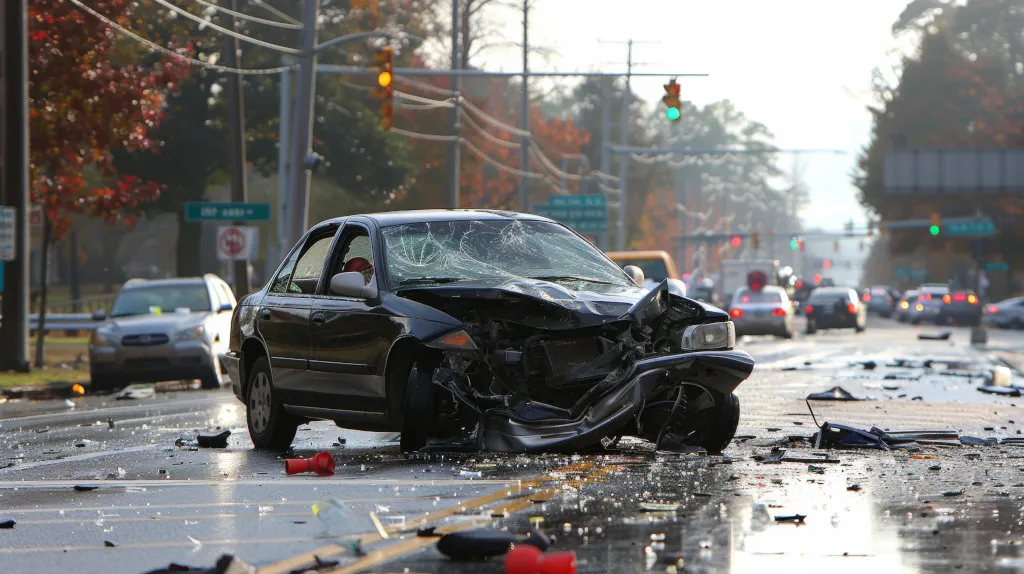Truck Accident Lawyer Serving the Bay Area

Experienced Representation for Victims of Truck and Commercial Vehicle Accidents in Alameda, Santa Clara, San Joaquin, and Contra Costa Counties
Truck accidents are among the most devastating collisions on California roads. A fully loaded semi-truck or tractor-trailer can weigh up to 80,000 pounds, leaving victims of smaller vehicles with catastrophic injuries or fatal outcomes. Unlike typical car accidents, truck collisions involve complex federal regulations and multiple liable parties.
At Ginny Walia Law Offices, we fight for individuals and families whose lives have been changed by negligent truck drivers, trucking companies, and commercial carriers. With over two decades of experience in personal injury and complex litigation, Attorney Ginny Walia provides the skill, tenacity, and compassion needed to win against large trucking corporations and their insurers.
Types of Truck Accident Cases We Handle
We represent victims injured in all types of truck and commercial vehicle collisions, including:
- Semi-truck and 18-wheeler accidents
- Delivery truck and box-truck crashes (FedEx, UPS, Amazon, etc.)
- Construction vehicle or dump truck accidents
- Tow truck and flatbed accidents
- Garbage truck collisions
- Accidents caused by truck driver fatigue, intoxication, or distraction
- Accidents involving overloaded or improperly secured cargo
- Underride and jackknife accidents
- Multi-vehicle pileups involving commercial trucks
Our firm handles both private trucking company cases and publicly owned or contracted vehicle cases under California law.
Understanding Truck Accident Liability in California
Truck accident cases are often complex, involving multiple responsible parties such as:
- Truck drivers - for negligent driving, fatigue, or substance use
- Trucking companies - for negligent hiring, supervision, or overworking drivers
- Vehicle or parts manufacturers - for defective brakes, tires, or safety systems
- Cargo loaders and shippers - for unbalanced or improperly secured loads
- Maintenance contractors - for failure to maintain safe vehicles
Under California negligence law, all parties whose actions contributed to the crash can be held liable for damages. Because commercial trucking is heavily regulated at both the state and federal levels (including FMCSA regulations), violations of those rules can significantly strengthen a victim's case.
Key California and Federal Trucking Regulations
Truck drivers and companies operating in California must follow:
- Federal Motor Carrier Safety Regulations (FMCSRs) for hours of service, driver qualifications, and vehicle inspections
- California Vehicle Code §§ 34500–34520, governing commercial vehicle safety standards
- Strict maintenance, logbook, and rest break requirements
- State weight and cargo limitations
Any violation of these laws can demonstrate negligence per se - automatically supporting liability for the crash.
Common Causes of Truck Accidents
Some of the most frequent causes include:
- Driver fatigue or falling asleep at the wheel
- Distracted driving (texting, GPS use, etc.)
- Speeding or unsafe lane changes
- Driving under the influence of drugs or alcohol
- Poor truck maintenance or brake failure
- Overloaded or unsecured cargo
- Negligent hiring and training practices
Our legal team conducts independent investigations, working with accident reconstructionists, black-box data analysts, and safety experts to uncover the truth and identify all liable parties.
Common Injuries in Truck Accidents
Due to their massive size and impact force, truck accidents often result in:
- Traumatic brain injuries (TBI)
- Spinal cord injuries and paralysis
- Multiple fractures or amputations
- Severe burns and crush injuries
- Internal bleeding and organ damage
- Fatal injuries leading to wrongful death claims
We partner with medical and economic experts to ensure that the full scope of physical, emotional, and financial harm is properly documented.
Damages You May Recover
Victims of truck accidents may be entitled to significant compensation for:
- Medical expenses and future treatment
- Lost income and reduced earning potential
- Pain and suffering
- Emotional distress and loss of enjoyment of life
- Property damage
- Wrongful death damages (for surviving family members)
Because trucking companies often carry multi-million-dollar insurance policies, it's crucial to have an attorney who knows how to negotiate aggressively and litigate effectively when insurers attempt to minimize payouts.
Truck Accident Cases Across the Bay Area
Ginny Walia Law Offices proudly serves clients throughout:
- Alameda County: Oakland, Fremont, Hayward, Berkeley, San Leandro
- Santa Clara County: San Jose, Milpitas, Santa Clara, Sunnyvale, Palo Alto
- Contra Costa County: Concord, Walnut Creek, Richmond, Antioch
- San Joaquin County: Stockton, Tracy, Lodi, Manteca
We are deeply familiar with the high-traffic corridors where truck accidents frequently occur - including I-880, I-580, I-680, Highway 101, and I-5 - and understand how to deal with local law enforcement agencies and insurance adjusters across jurisdictions.
Why Clients Choose Ginny Walia Law Offices
- 20+ years of litigation experience in serious injury and wrongful death cases
- Successful track record against commercial insurers and corporate defendants
- Personalized client service - every case handled directly by Attorney Ginny Walia
- Contingency-fee representation - you pay nothing unless we win
- Bilingual services (English and Punjabi) and deep community ties throughout the Bay Area
Our firm combines the resources of a large firm with the individual attention of a boutique practice.
What to Do After a Truck Accident
If you've been injured in a truck collision:
- Call 911 and obtain medical attention immediately.
- Do not discuss fault with the truck driver or company representatives.
- Gather photos, witness names, and license plate or DOT numbers if possible.
- Request a copy of the police report.
- Contact a truck accident lawyer before speaking to insurance adjusters.
Because trucking companies often deploy their own investigators immediately after a crash, time is critical - early legal intervention can preserve vital evidence like electronic logging device (ELD) data and maintenance records.

